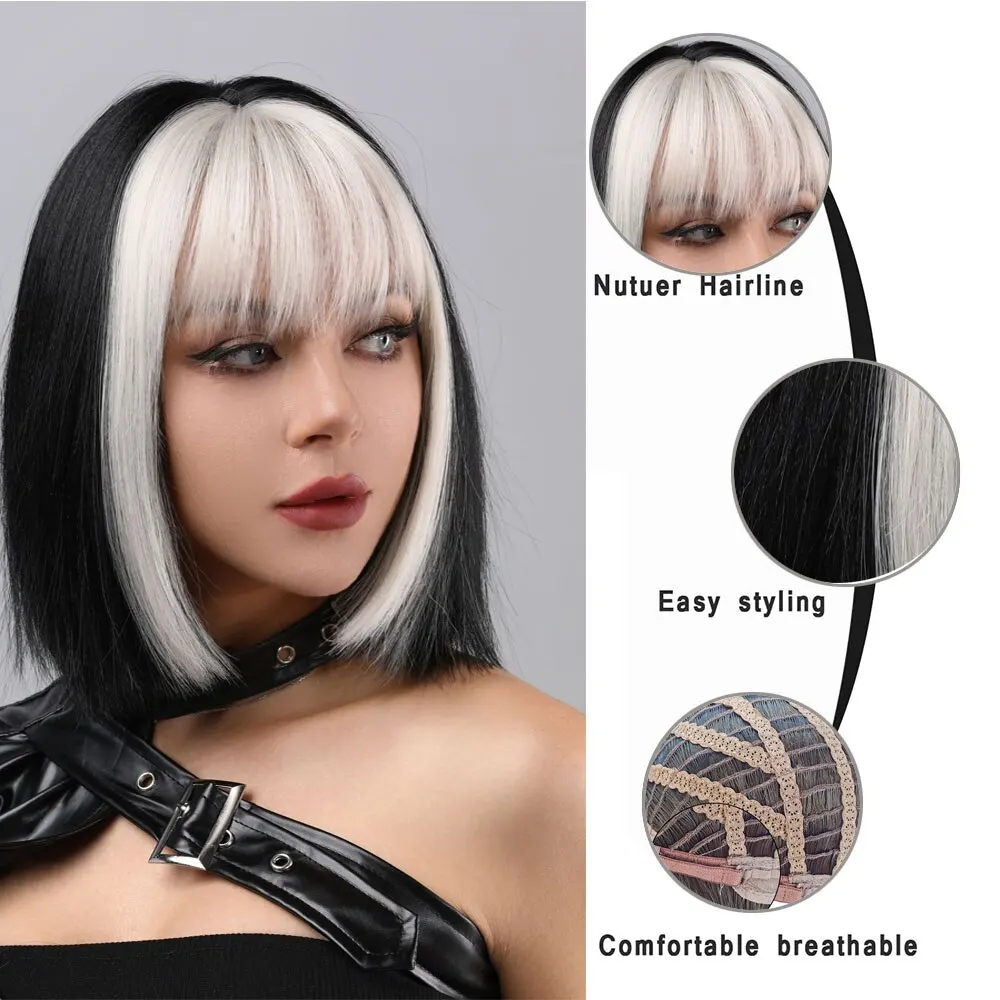Allergic reaction to synthetic hair extensions can be a distressing experience for individuals seeking to enhance their hairstyle and appearance. These reactions can manifest as itching, redness, swelling, or irritation on the scalp or skin, leading to discomfort and frustration. Understanding the causes, symptoms, and management of allergic reactions to synthetic hair is essential for maintaining healthy hair and skin while enjoying the benefits of hair extensions.

The Causes of Allergic Reactions to Synthetic Hair Extensions
Allergic reactions to synthetic hair extensions can be attributed to various factors, including the materials used in the manufacturing process, chemical treatments applied to the fibers, or sensitivity to certain dyes or coatings present in the extensions. Some individuals may have pre-existing sensitivities or allergies to specific synthetic fibers or components commonly found in hair extensions, leading to adverse reactions upon contact with the skin or scalp.
Recognizing the Symptoms of Allergic Reactions to Synthetic Hair
Symptoms of allergic reactions to synthetic hair extensions can range from mild to severe, depending on the individual’s sensitivity and the duration of exposure. Common signs of an allergic reaction may include itching, redness, inflammation, rash, or blistering on the scalp, neck, or forehead where the extensions are attached. In some cases, individuals may also experience hair loss or scalp tenderness as a result of prolonged exposure to allergens in synthetic hair products.

Seeking Professional Evaluation and Diagnosis for Allergic Reactions
If you suspect that you are experiencing an allergic reaction to synthetic hair extensions, it is advisable to seek medical evaluation and diagnosis from a dermatologist or allergist. A healthcare professional can assess your symptoms, conduct allergy testing if necessary, and recommend appropriate treatment options to manage the allergic reaction effectively. Avoid self-diagnosing or ignoring persistent symptoms, as untreated allergic reactions can worsen and cause further complications over time.
Preventive Measures to Minimize Allergic Reactions to Synthetic Hair
To reduce the risk of allergic reactions to synthetic hair extensions, consider taking preventive measures before and during the application of the extensions. Conduct a patch test on a small area of skin before applying the extensions to check for any adverse reactions or sensitivities. Choose hypoallergenic or organic hair extension products that are free from harsh chemicals, fragrances, or preservatives that may trigger allergic responses in sensitive individuals.

Managing Allergic Reactions to Synthetic Hair Extensions
If you experience an allergic reaction to synthetic hair extensions, there are several steps you can take to manage the symptoms and alleviate discomfort. Remove the extensions immediately to reduce further exposure to allergens and allow the affected skin to breathe and recover. Wash the scalp and hair gently with a mild, fragrance-free shampoo to cleanse any residue or irritants from the extensions and soothe irritated skin.
Using Topical Treatments for Allergic Reactions to Synthetic Hair
Topical treatments such as corticosteroid creams, antihistamine lotions, or soothing ointments can help reduce inflammation, itching, and redness associated with allergic reactions to synthetic hair extensions. Apply a thin layer of the topical treatment to the affected area as directed by your healthcare provider to promote healing and provide relief from discomfort. Avoid scratching or picking at the irritated skin to prevent further irritation or infection.
Consultation with a Hair Care Professional for Alternative Solutions
If you continue to experience allergic reactions to synthetic hair extensions despite preventive measures and treatment efforts, consult with a hair care professional or stylist for alternative solutions. They can recommend hypoallergenic hair extension options, alternative attachment methods, or natural hair products that are less likely to trigger allergic responses in sensitive individuals. Collaborate with a knowledgeable professional to explore alternative styling options that prioritize your comfort and well-being.

Embracing Natural Hair Care Practices for Sensitive Individuals
For individuals prone to allergic reactions or sensitivities, embracing natural hair care practices can help minimize the risk of adverse reactions and promote healthy hair and scalp. Opt for organic hair care products, sulfate-free shampoos, and silicone-free conditioners that are gentle on the skin and free from harsh chemicals or irritants. Prioritize scalp health by avoiding excessive heat styling, tight hairstyles, or prolonged wear of hair extensions to prevent irritation and maintain a balanced environment for healthy hair growth.
Educating Yourself on Allergic Reactions and Skin Sensitivities
Educating yourself on common allergens, irritants, and skin sensitivities related to hair extensions can empower you to make informed decisions about your hair care routine and product choices. Familiarize yourself with ingredients to avoid in hair extension products, such as parabens, sulfates, phthalates, and formaldehyde-releasing agents, which can exacerbate skin reactions in sensitive individuals. Stay vigilant about monitoring changes in your skin or scalp health and seek professional guidance if you experience persistent or severe allergic symptoms.
Promoting Skin Health and Comfort in Hair Extension Styling
Prioritizing skin health and comfort in hair extension styling involves adopting practices that support a balanced and nourished scalp environment. Avoid tight hairstyles, excessive tension on the hair follicles, or prolonged wear of heavy extensions that can strain the scalp and lead to irritation or inflammation. Take breaks between hair extension installations to allow the scalp to rest and recover, promoting healthy blood circulation and optimal hair growth without compromising skin integrity.
Consultation with a Dermatologist for Allergy Testing and Management
If you have a history of allergic reactions to synthetic hair products or other beauty products, consider consulting with a dermatologist for allergy testing and personalized management strategies. Allergy testing can help identify specific triggers or sensitivities that may be causing your reactions to hair extensions, allowing for targeted treatment and prevention measures. Work closely with your dermatologist to develop a comprehensive plan for managing allergies and maintaining healthy skin and hair while enjoying your desired hairstyle.

Conclusion:
Empowering Individuals with Knowledge and Resources for Allergic Reactions to Synthetic Hair Extensions
In conclusion, understanding and managing allergic reactions to synthetic hair extensions are essential for individuals seeking to enhance their hairstyle while prioritizing skin and scalp health. By recognizing the causes, symptoms, and preventive measures associated with allergic reactions, individuals can take proactive steps to minimize the risk of discomfort and maintain a positive hair extension experience. Seek professional evaluation, adopt preventive practices, and explore alternative solutions to address allergic reactions effectively and ensure a safe and enjoyable hair styling journey. Empower yourself with knowledge and resources to make informed decisions about synthetic hair extensions and prioritize your well-being and comfort in every aspect of your hair care routine.